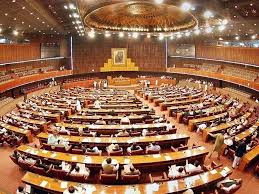Nigeria's Debt Hits N138tn: National Assembly Faces Fierce Backlash For Rubber-Stamping Loan Approvals
"Nigeria’s Debt Hits N138tn: National Assembly Faces Fierce Backlash for Rubber-Stamping Loan Approvals"
By Achimi Muktar
Nigeria’s soaring debt continues to spark outrage, as the country’s public debt has now reached a staggering N138 trillion. The National Assembly, however, is facing mounting criticism for approving President Bola Tinubu’s loan requests without proper scrutiny, raising concerns over the long-term implications for Nigeria’s economy and future generations.
The latest loan approval, a $2.2 billion (N1.767 trillion) request, was granted by both the Senate and the House of Representatives barely 48 hours after the President made his request. This swift approval followed the presentation of a report by the Chairman of the Senate Committee on Local and Foreign Debts, Aliyu Wamakko (APC, Sokoto North), during plenary.
A Debt Crisis in the Making?
The National Assembly’s quick endorsement of the loan requests has sparked outrage among experts and lawmakers alike. Nigeria’s public debt had already risen to N134 trillion as of June 2024, and with the addition of loans in July and November, it now stands at N138 trillion. The rate at which these loans are being approved, critics argue, is a worrying trend that threatens the nation’s financial stability.
While President Tinubu has defended the loans as integral to his fiscal strategy for the coming year, concerns about their impact on Nigeria’s future are mounting. According to Senate President, Godswill Akpabio, the $2.2 billion loan is part of the external borrowing plan for the 2024 fiscal year. However, critics point out that the National Assembly’s failure to thoroughly evaluate the necessity and consequences of these loans could lead to economic disaster.
A Pattern of Unchecked Approvals
This is not the first time the National Assembly has swiftly approved significant loans requested by the executive. Earlier this year, lawmakers approved several other loans, including a N6.2 trillion appropriation amendment bill in July, as well as a $7.8 billion loan and €100 million as part of Nigeria's 2022–2024 borrowing plan. Most notably, the National Assembly also green-lighted a $800 million World Bank loan and N500 billion in palliative funds linked to the controversial removal of petrol subsidies.
Despite the mounting debt, the National Assembly has given little indication of their concern over how these funds will be used or whether they will have any real, lasting benefits for the Nigerian people. Experts argue that this pattern of swift, unexamined loan approvals is setting a dangerous precedent.
Experts Decry Lack of Oversight
Auwal Rafsanjani, Executive Director of the Civil Society Legislative Advocacy Centre, strongly criticized the National Assembly for failing in its oversight duties. “It’s quite unfortunate that the lawmakers have chosen to side with the executive rather than scrutinize its activities,” he said, adding that the legislature’s role was to investigate and ensure that every financial request was in the best interest of the Nigerian people.
Legal expert Victor Opatola echoed this sentiment, emphasizing the constitutional responsibility of the National Assembly to assess the necessity of loans and ensure they benefit the country. “The National Assembly has the constitutional mandate to interrogate the need for these loans,” Opatola said. “It’s their job to ensure that they’re not approving loans that will harm Nigeria’s long-term economic health.”
Calls for Accountability
A growing chorus of voices is calling for greater accountability from both the National Assembly and the executive. Senior Advocate of Nigeria, Ebun-Olu Adegboruwa, warned that unchecked borrowing could enslave future generations with unpayable debt. “Nigerians must demand greater accountability from their representatives,” he said, stressing that the government’s current borrowing spree must result in tangible benefits for the public.
Prof. Chris Nwaokobia, Convener of the Country First Movement, also criticized the National Assembly for its apparent alignment with the executive, describing it as an “appendage” of the executive rather than an independent, checks-and-balances body. “What we have now is a rubber stamp legislature that does not interrogate the executive,” Nwaokobia stated. “This undermines the will of the people and weakens democratic institutions.”
The Road Ahead: Will Nigeria Pay the Price?
As Nigeria’s debt spirals out of control, the question remains: will the National Assembly continue rubber-stamping the executive’s loan requests, or will it finally take a stand and demand transparency and accountability?
With experts warning that the unchecked approval of loans could have devastating consequences, Nigerians must begin to demand that their representatives uphold the constitutional mandate to serve the interests of the people, not the executive. The current trajectory could lead to a future where the country is weighed down by crippling debt—unless significant changes are made now.





















